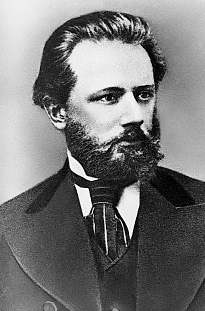Biography: Pyotr Ilyich Tchaikovsky (1840–1893)

Tchaikovsky was born in the Russian countryside, the son of a mining inspector, but the family moved to St. Petersburg when he was eight. In nineteenth-
Tchaikovsky was fortunate in this respect, for after working as a government clerk for only a few years, he was able to enter the new St. Petersburg Conservatory, founded by another Russian composer, Anton Rubinstein. At the age of twenty-
Though his pieces may sometimes sound “Russian” to us, Tchaikovsky was not as devoted a nationalist as some other major Russian composers of the time (see page 284). Perhaps because of this, he had greater international renown than they. Of all the nineteenth-
Tchaikovsky was a depressive personality who more than once attempted suicide. He had been an extremely delicate and hypersensitive child, and as an adult he worried that his homosexuality would be discovered and exposed. In an attempt to raise himself above suspicion, he married a highly unstable young musician who was in love with him. The marriage was a fiasco; in a matter of weeks, Tchaikovsky fled and never saw his wife again. She died in an asylum.
For many years Tchaikovsky was subsidized by a wealthy, reclusive widow named Nadezhda von Meck. She not only commissioned compositions from him but actually granted him an annuity. By mutual agreement, they never met; nevertheless, they exchanged letters regularly over the thirteen years of their friendship. This strange arrangement was terminated, without explanation, by Madame von Meck.
By this time Tchaikovsky’s position was assured, and his music widely admired. In a tragic mishap, he died after drinking unboiled water during a cholera epidemic.
Chief Works: Symphonies No. 4, 5, and 6 (Pathétique); a very popular Violin Concerto and Piano Concerto ◼ Operas: The Queen of Spades and Eugene Onegin, based on works by the Russian Romantic poet Alexander Pushkin ◼ Symphonic poems: Romeo and Juliet, Hamlet, Overture 1812 (about Napoleon’s retreat from Russia in that year) ◼ Ballet scores: Swan Lake, Sleeping Beauty, The Nutcracker
Encore: After Romeo and Juliet, listen to The Nutcracker; Symphony No. 4; Violin Concerto.
Image Credit: Bettmann/CORBIS.